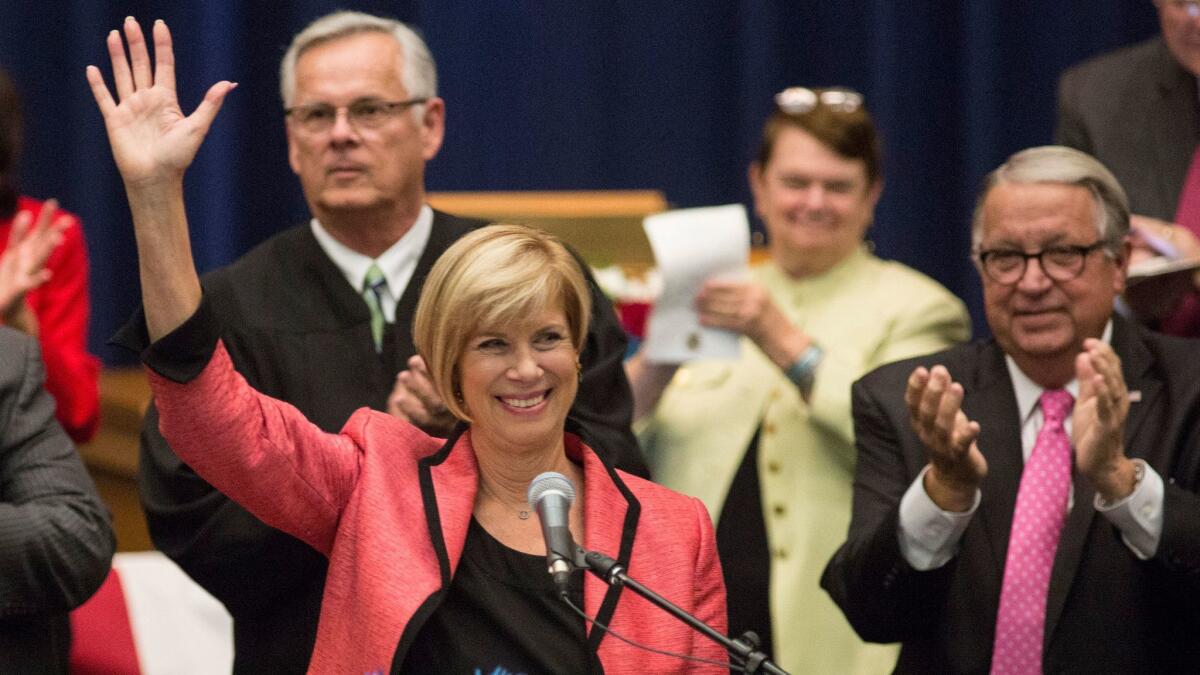L.A. County approves $30-billion budget

Los Angeles County supervisors on Monday unanimously approved a $30.1-billion budget for the fiscal year that begins Saturday.
The 2017-18 budget reflects an increase of about $200 million over the current fiscal year, as well as the addition of nearly 900 jobs.
The new budget, unveiled in April, includes an emphasis on the social safety net, providing for additional social workers at the Department of Children and Family Services, launching a program to provide care for the county’s sickest patients, and adding funds for indigent defense and jail diversion programs.
The budget adopted Monday also takes into account an expected $260 million in revenue for homeless services from Measure H. The quarter-cent sales tax was approved by voters in March, and last month a 50-member panel finalized recommendations for how the funds should be divided up.
The spending blueprint includes a slight increase for the In-Home Supportive Services program, which helps fund in-home care for the low-income elderly, blind and disabled. Gov. Jerry Brown had indicated he would seek to shift much of the cost of the program to counties but backed down after reaching a deal with county officials across the state.
The 2017-18 budget is the first to be adopted by the current Board of Supervisors, which includes new members Kathryn Barger and Janice Hahn. Both introduced motions during the budget deliberations Monday, with Barger seeking more funding for the L.A. County High School for the Arts and Hahn moving to create a pilot mobile stroke treatment unit. Both motions were approved.
Supervisor Mark Ridley-Thomas said the county’s balanced budget, combined with a recent upgrade to its credit rating, augur well for the future.
“The County of Los Angeles is in good shape and it needs to be in good shape because of the assault on the safety net,” Ridley-Thomas said, referencing funding cuts being considered in Washington, D.C.
President Trump’s proposed budget would reduce federal funding for affordable housing, and for social and health services that support the poor, such as food stamps. In addition, a bill currently under consideration by the Senate to repeal and replace the Affordable Care Act would undo the expansion of Medicaid, reduce the number of people eligible for subsidies and eliminate the requirement that people carry health insurance.
Twitter: @AgrawalNina
More to Read
Start your day right
Sign up for Essential California for news, features and recommendations from the L.A. Times and beyond in your inbox six days a week.
You may occasionally receive promotional content from the Los Angeles Times.







